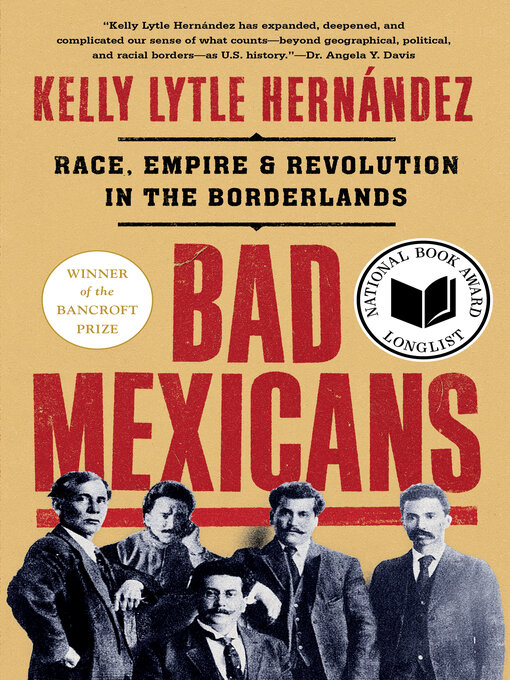Winner of the Bancroft Prize • Shortlisted for the PEN/John Kenneth Galbraith Award for Nonfiction • Shortlisted for the National Book Critics Circle Award for Nonfiction • Shortlisted for the Mark Lynton History Prize • Longlisted for the National Book Award for Nonfiction • Longlisted for the Cundill History Prize
One of The New Yorker's Best Books of 2022 • A Kirkus Reviews Best World History Book of 2022 • One of the Smithsonian's 10 Best History Books of 2022
"Rebel historian" Kelly Lytle Hernández reframes our understanding of U.S. history in this groundbreaking narrative of revolution in the borderlands.
Bad Mexicans tells the dramatic story of the magonistas, the migrant rebels who sparked the 1910 Mexican Revolution from the United States. Led by a brilliant but ill-tempered radical named Ricardo Flores Magón, the magonistas were a motley band of journalists, miners, migrant workers, and more, who organized thousands of Mexican workers—and American dissidents—to their cause. Determined to oust Mexico's dictator, Porfirio Díaz, who encouraged the plunder of his country by U.S. imperialists such as Guggenheim and Rockefeller, the rebels had to outrun and outsmart the swarm of U. S. authorities vested in protecting the Diaz regime. The U.S. Departments of War, State, Treasury, and Justice as well as police, sheriffs, and spies, hunted the magonistas across the country. Capturing Ricardo Flores Magón was one of the FBI's first cases.
But the magonistas persevered. They lived in hiding, wrote in secret code, and launched armed raids into Mexico until they ignited the world's first social revolution of the twentieth century.
Taking readers to the frontlines of the magonista uprising and the counterinsurgency campaign that failed to stop them, Kelly Lytle Hernández puts the magonista revolt at the heart of U.S. history. Long ignored by textbooks, the magonistas threatened to undo the rise of Anglo-American power, on both sides of the border, and inspired a revolution that gave birth to the Mexican-American population, making the magonistas' story integral to modern American life.


